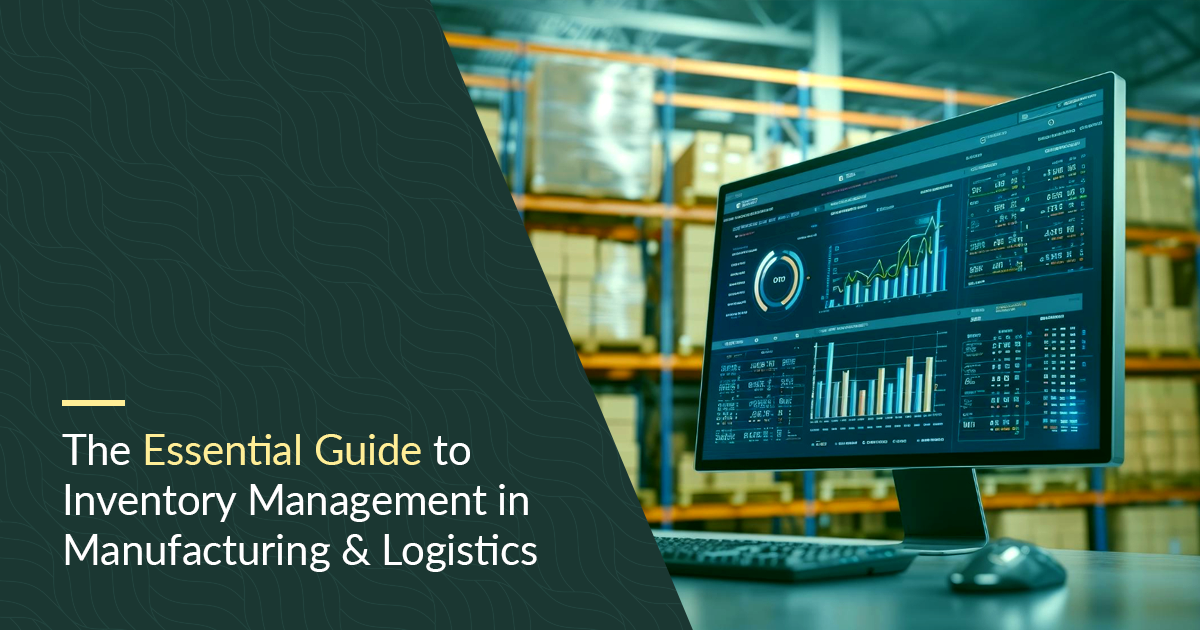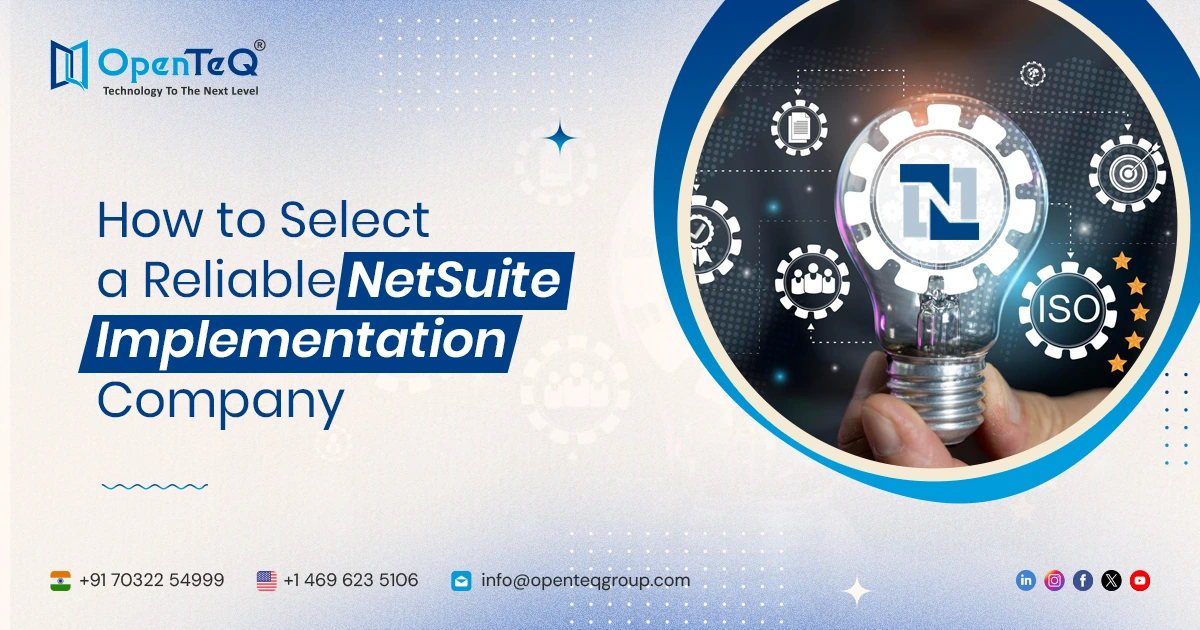The Essential Guide to Inventory Management in Manufacturing & Logistics
Businesses engaged in shipping and manufacturing now have access to unprecedented growth prospects. Globalization and connectivity have opened up the entire world as a prospective market. Additionally, as change happens more quickly, new technologies provide enticing new capabilities that can boost consumer happiness and enhance the operation of your company. Using industry-leading best practices for inventory management in your manufacturing and logistics organization is one method to grow your business.
Businesses in manufacturing and logistics face similar problems without a contemporary solution, most of which are caused by inconsistent and dispersed data. As a result, there is limited visibility into inventories and orders, and order processing is ineffective and filled with errors. Furthermore, if a large portion of your procedures are manual, you may discover that this is impeding your ability to expand into new markets or channels.
If any of this sounds familiar to you, it's worth looking at some inventory management best practices that will help you get beyond these obstacles to growth.
Let us first elucidate the inventory management process.
What does inventory management entail?
The instruments and procedures used to identify and monitor all your inventories from acquisition to sale of items are called effective inventory management. To ensure that you always have enough product on hand to fulfill customer orders, this should give you insight into how much stock to order and when to order it. In addition, if replenishment is required sooner than anticipated, your system needs to alert you beforehand. An efficient inventory management system has the following characteristics:
-
Bin and lot handling
-
Resupply depending on demand
-
Volume and Customer Metrics
-
Costing
-
Multiple-site inventory
Here are four best practices for inventory management in manufacturing and logistics organizations.
1. Combine inventory, shipping, and fulfillment.
Having comprehensive inventory management features such as those mentioned above makes it easier to monitor the areas where you can improve operating efficiency and tighten stock level control, both of which will save inventory expenses in the long run. But when combined with shipping and fulfillment, these features can offer considerably greater benefits. To further increase efficiency, you may do away with manual re-entry, order processing errors, and the enormous expenses associated with reconciling shipping information by integrating these processes.
2. Move quickly and with complete visibility
An inventory, item, order, and customer single view is the first step toward real efficiency gains. The key to beating this is moving your company to a real-time, cloud-first platform that maintains all channels running from a single foundation. It necessitates putting in place a centralized order management system that houses all of the data related to your activities, including sourcing, payments, fulfillment, orders, and sales channels. Ensuring that all channels of fulfillment have access to the necessary data is equally important, as it allows you to distribute goods according to stock levels & demand requirements.
You will be in a better position to add more eCommerce and sales channels, as well as find and fix supply chain inefficiencies. From there, you may use other tactics like managing pricing and margins or turning company data into patterns related to supply, demand, expenses, and fulfillment.
NetSuite Welcomes OpenTeQ Technologies as a Strategic Partner
3. Make inventory management more automated
Establishing connections and integrating your cloud-based company systems also provides the foundation for you to begin automating tasks that will improve workflow and boost worker output. This enhances operational output and frees up employee time to concentrate on business optimization instead of manual labor. The end-to-end order and inventory lifecycle, including order capture and validation, order release, shipment confirmation, customer communications, and settlements, can also be automated with a unified system. This enables you to support intricate procedures like dropshipping, split shipments, personalized products, and more effectively.
4. Tying everything together
Although you could be tempted to employ a variety of stand-alone applications for fulfillment and inventory management, issues might occur when trying to integrate each individual application into the supply chain. Adopting platforms such as cloud-based ERP applications, which are guaranteed to give a best-practice inventory management system, is a more intelligent and comprehensive strategy. Cloud ERPs can support CRM, business intelligence, marketing, financials, and other business functionality in addition to aiding you with supply chain management, both now and in the future. Not only will your inventory management succeed with fewer integrations and a single source of truth, but your whole company will gain productivity and efficiency.
It is becoming harder to remain ahead of the competition in today's manufacturing and logistics setting. Staying flexible and ready for change is critical for your business to meet ever-changing expectations. Furthermore, using manual processes that are not scalable or juggling several platforms would only hinder your progress considering recent technological advancements. Using these best practices for inventory management means making the necessary investments in cloud ERP technology, which will enable you to meet the demands of a modern business and maintain your competitive edge.
Not just NetSuite Specialists
Supply chain management is one of the industry-leading solutions that OpenTeQ offers, tailored to the NetSuite platform. We provide our customers with end-to-end solutions to help them develop and realize the full potential of their businesses through our in-house integrations, extensions, partnerships, and full-service capabilities. To find out if we are the best NetSuite implementation partner for you, get in touch with us right now to talk to an expert.
Having designed and implemented numerous complete and customized business systems, including payroll, financial, warehousing, and e-commerce solutions, OpenTeQ is a top NetSuite partner. OpenTeQ offers a comprehensive suite of solutions tailored specifically for manufacturers, leveraging the power of NetSuite ERP software. With a focus on streamlining operations, optimizing processes, and enhancing productivity, OpenTeQ's NetSuite offerings cater to the unique needs of manufacturing businesses. From ERP implementation to management software and specialized portals, OpenTeQ provides manufacturers with the tools they need to thrive in today's competitive landscape. With NetSuite for Manufacturing, companies can confidently navigate complexities, drive growth, and achieve operational excellence.







